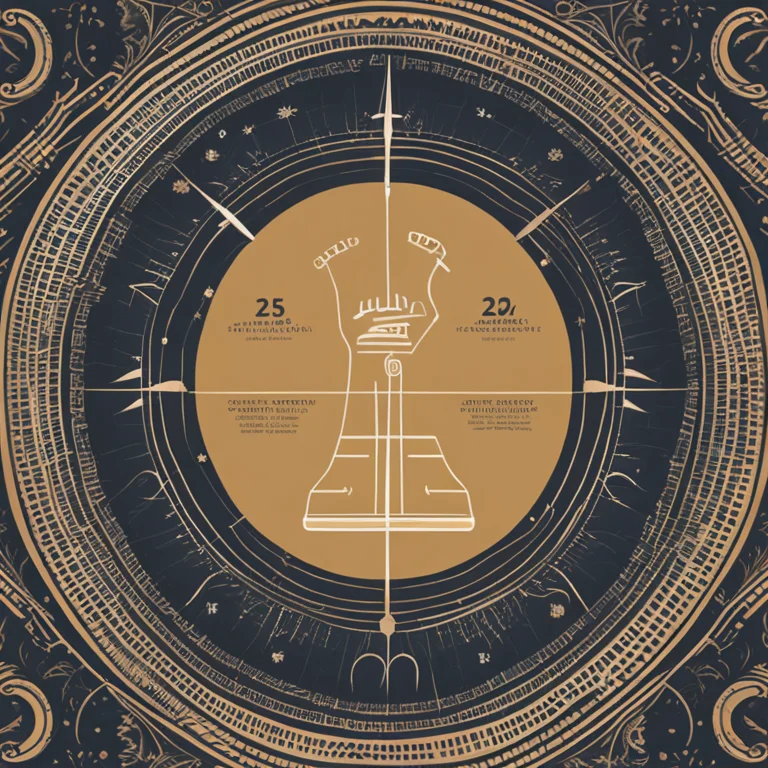
The Fascinating Realm of Palm Lines Science
Delve into the fascinating realm of Palmistry and discover what your palm lines may reveal about your personality and destiny in this insightful science-based analysis.
article by Nora Pennington
A Brief Introduction to Palmistry
Palmistry, or chiromancy, has been practiced for centuries, transcending diverse cultures and geographies. It’s the art of analyzing the physical features of the palm to interpret personality traits and predict future events. While skeptics regard it as a pseudoscience, enthusiasts believe in its potential for insight. Modern palmistry combines traditional techniques with psychological theories and has evolved to incorporate scientific approaches to understanding hand patterns in relation to neural and genetic factors.

The Heart Line: Emotional Blueprint
One of the most scrutinized palm lines is the Heart Line. It typically runs horizontally across the upper part of the palm, reflecting emotional and romantic perspectives. A deep, clear Heart Line suggests a strong emotional foundation and stable relationships, whereas a faint or broken line may suggest emotional upheavals or hardship. Contemporary palmists consider genetics and habitual hand movements as factors in the development of these lines.

The Head Line: Intellectual Path
The Head Line, often found below the Heart Line, signifies intellectual tendencies and the way we think. A long and straight Head Line indicates clear, logical thinking, while a wavy line might point to a creative and spontaneous individual. Modern research might one day clarify whether the shape of the Head Line correlates with cognitive processes and neurological pathways.

The Life Line: Vitality and Life Changes
Surrounding the thumb is the Life Line, frequently misconceived as a predictor of longevity. Rather, it reflects major life changes, vitality, and physical strength. A well-defined Life Line can denote a zest for life and robust health; breaks in the line are thought to signify life-altering experiences or significant transitions. Recent approaches look toward potential connections between hand flexion creases and overarching health conditions.

Palm Lines and Scientific Scrutiny
The scientific community, while generally skeptical, does not entirely dismiss the observations made by palmists. For example, some studies explore dermatoglyphics, which examines fingerprints and skin patterns, including palm lines, for insights into developmental disorders. The variable nature of palm lines raises questions about their heritability and connection to personality traits, which are areas ripe for research and discovery.
The Future of Palmistry in Science
Though palm lines science lacks empirical support as a tool for precise predictions, it has potential applications in the fields of psychology and genetics. Advances in biometric technology may enable more thorough profiling based on palm features, which could contribute to a better understanding of the interplay between physical traits and personal tendencies. The integration of Palmistry and technology could redefine its role in the digital age.
Conclusion: A Melding of Old and New
Palmistry’s resilience as a cultural practice attests to its intrigue. Whether viewed through a mystical lens or considered for its psychosomatic connections, the examination of palm lines is a tradition that embodies humanity's enduring quest to comprehend itself. Moving forward, the fusion of ancient wisdom with modern science may provide us not only with cultural enrichment but also with novel insights into human nature.
Published: 1/10/2024
Modified: 1/10/2024
More predictions
Come back here soon to learn more about yourself and your future


The Essence of Palmistry: Insights into Your Palm
Delve into the fascinating world of palmistry and discover what the lines on your palm reveal about your life path and personality, with contemporary relevance for the modern seekers.


Palm Reading Guide: Basics and Insights
Delve into the art of palmistry with this essential guide to reading palms, revealing secrets to personality and destiny through the lines on your hand.


Guide to Palmistry: Interpreting Your Palm Lines
Discover the ancient art of palmistry with our comprehensive guide to reading and interpreting the lines on your palms.